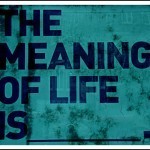Lilith Saintcrow's Blog, page 181
January 11, 2013
While Running
Yep, still cheering for Agatha over at Girl Genius. “…before I utterly DESTROY him!” YOU GO, GIRL.
I’ve still pulled back into my cave; the social media semi-fast (only engaging at certain times) is doing me no end of good. Also, my running mileage has gone up, and I’m past the point where I feel like I’m just thanklessly slogging along and into the “hey, I can do this” portion of training. So, I thought I’d give you a peek at my running playlist. (Translation: AUGH HAVE NO BLOG POST IDEA QUICK THINK OF SOMETHING AUGH…)
* The Kiss, Last of the Mohicans I have the movie soundtrack version on my playlist; this kicks off versions of a short story with Kaia and Darik (from Steelflower) inside my head. There’s a point where it’s just them in the third (unwritten) Steelflower book, going across ice-plains in these surfing boats, sort of…I guess you’ve got to be there, I dunno.
* Believe, Run Lola Run In the beginning of Defiance, when Dru is on the run from the nosferat, this is what I listened to over and over. It begins with her lacing up her boots, and is interspersed with shots of Christophe coordinating the mission from a helo and the roof.
* Guardian Angel, Juno Reactor This belongs to an unpublished book about a contract killer who gets a call from an ex-girlfriend. Also, vampires. I love that story, and while running I replay clips of it inside my head.
* Battle Without Honor or Humanity, Tomoyasu Hotei No official video, so I’ve linked to one of the more badass performances he gives of this number. This is the “let’s get down to serious business” part of the run.
* Wrong Number, The Cure I get flashes of Jill Kismet clearing hellbreed holes during this one. And the beat is fast enough to get me through three-quarters of a mile at top speed.
* E.T., Katy Perry The only Katy Perry song I like. Good beat, and inside my head while running I’m also blocking out a fight scene between cyborgs. Look, it keeps me running, all right?
* Feel Good Inc., Gorillaz This is when I slow down a bit, settle into my long-run pace, and just go.
* Supermassive Black Hole, Muse When werwulfen run and djamphir chase you, this is what’s playing.
* Ebla, ES Posthumus This will always be the song that expresses Jill Kismet to me. Always.
* Desert Rose, Sting I have a story idea that centers around Night and Her daughter, and this features in it. Still gestating, because there’s a vampire and a werewolf, plus wraiths. This just keeps me running while imagining a tango…
* Clubbed To Death, Rob Dougan Confession time: this calls up images of a short story I’ll probably never write about Lia Spocarelli being rescued from a demon’s downtown tower by Danny Valentine and Lucas Villalobos, with Japhrimel showing up halfway through. I wish Rob Dougan would make some more music, dammit.
* Long Cool Woman (In A Black Dress), The Hollies This is winding down, and another confession: when Graves comes back to Dru, this is what’s playing on the jukebox in a rundown, nasty dive of a bar. But I doubt I’ll ever write that story.
* Sweet Talk, The Killers At the end of the Kismet series, when they’re driving into the desert, this is what’s playing.
After that, the music turns soft and reflective for my cooldown walk. This is about an hour’s worth of running; it takes me through interval training or about five-ish miles. (And Miss B is grateful to be slowing down at the end, too.) Running is an intensely creative time for me. When I run, plot tangles sort themselves out, characters speak, story arcs get delineated. Climbing is also a creative activity, but it’s mostly for single plot problems–I’ll reach the top and suddenly realize I’ve solved an insurmountable problem. Usually I’m shaking with adrenaline and exhaustion, so I don’t celebrate, but still. (God, I have to go back to climbing. I’m all itchy to chalk up and boulder a bit.)
Anyway, there it is: a window into the creative process, which exercise and music are harnessed to. All things serve the work.
And now I’ve got to play some John Denver while I write a mentath in an opium den. Look, I don’t know, it’s what he wants, all right? I give the characters what they want, they make with the story-happening.
Over and out.
January 10, 2013
Small Differences
 Do you see it? DO YOU?
Do you see it? DO YOU?
Well, if you don’t, that’s okay. Because I will tell you. You couldn’t, in fact, stop me from telling you.
What you’re looking at is a project in progress. The top two drawer pulls are new, the bottom two are the old ones. Which were perfectly serviceable, but they were a little…florid. And in a kitchen full of stainless steel appliances, they kind of…didn’t match.
So I got out the drill and the measuring tape, I read some stuff on the Internet, and I replaced my drawer pulls. It was suprisingly easy–the hardest part was restraining myself from putting contact paper in the drawers. (I don’t like the paper I have. It’s a little…grandmotherish, if you know what I mean.) And now it looks mahvelous. (Well, the kids haven’t noticed, but who cares? I know.)
I know, it’s no Young House Love. (Though they did inspire me to look into chalkboard paint, ZOMG.) But it’s one small step, and now I feel incredibly Handyman-Ish and Useful and Adult and stuff.
*flexes a little*
January 9, 2013
Baby Steps, Or, Self-Pub Considerations
 Crossposted to Deadline Dames. Check us out!
Crossposted to Deadline Dames. Check us out!
I’m considering some self-publishing.
The items in the minus column are overwhelming: investing in editing and copyediting, not to mention the cost of decent cover art, distribution and retail channels and their final effects on price etc. The time investment versus the likely return. Saturating whatever market slice I have and the likely effects on my other books, which means my other income.
The pluses: making a few niche fans happy (Squirrel!Terror, anyone?) and maybe diversifying (writing advice culled from blog posts from the old, hacked site, dear God, that’s a lot of work and I am not sure I can do it without feeling like a hypocrite because I HATE HATE HATE Books On Writing, considering most of them useless…) or maybe bringing out that Beauty and the Beast retelling that I love so much but that can’t find a home elsewhere (even though I should probably accept that it’s just not a book meant for publication)…
See? Even the pluses have minuses.
Yes, there’s a huge boom going on in self-publishing nowadays. The predictable end result is that everyone in the world can read slush piles now, and pay for the privilege to boot. Sure, there’s good self-publishing (those who have learned their craft and their lessons, and pay for quality control) out there, but the vast majority of it is an unedited mass and it shows. The proportion of decent quality to crud is just the same as it’s ever been, the numbers are just bigger. Sort of like that guy in high school who always seemed to get lucky (boy was like a rabbit, believe me) who a few of my guy friends envied until we figured out over a fifth of Stoli one night that he didn’t get a higher percentage than the rest of us, he just propositioned everything that moved, so it only looked like he had some super-duper Get Laid Secret. The numbers were just…bigger. (This lesson is adaptable to trad publishing, but that’s–say it with me–another blog post.)
Self-publishing works in certain situations, not so much in others. There’s those who successfully bucked the odds (they are long odds, and there have to be a few winners to keep the rest of the chumps playing) and those who already had a platform with a built-in audience (BoingBoing, anyone?) and those who use self-publishing as an adjunct to traditional publishing or basically as an experiment. There are those who can afford to throw money into the hole a self-pubbed title can become, and occasionally they make it big too. There are also those who have made a minor industry out of telling people that they can self-pub and have monstrous success too if they just listen to So-and-So’s Thoughts On The Matter And Become One Of So-and-So’s Faithful Army of Trolls.
Not pointing any fingers, you understand.
There’s also idiots like Yours Truly who undertake a self-pub project thinking there will be little to no interest, but that it will be fun and might be useful for other writers/fans. (Yep. I did that.) To say I was unprepared is an understatement, but it was a nice experiment.
The end result is, I am not certain which type of self-pub (if any) will end up working for me. I’m asking publishing friends and professionals their opinions, reading what’s worked for other people, so on and so forth. It may end up being far too much trouble to pursue, even though I really would like to have a Squirrel!Neo paper book.
Which gets me to the whole point, dear Readers: what considerations am I missing? What pluses or minuses have I forgotten?
*sits back to listen*
photo by:
Chalky Lives
January 8, 2013
Random, Again
 The drawing-back continues apace. The decompression is something fierce, let me tell you.
The drawing-back continues apace. The decompression is something fierce, let me tell you.
So, some random links!
* Murder By The Book is closing, which is very sad. If anyone out there wants to buy a bookstore, well, you’ve got a chance now.
* I couldn’t help but cheer at Agatha here. (I’m going to be going around muttering “I DO NOT NEED RESCUING” all day now. And giggling.)
* The irrepressible, brave, and awesome Danny Marks talks about creativity and depression.
About that last one…I have a post in mind about anxiety and my own creative process, and I’m not sure I want to write it. *is thoughtful*
* Apparently birds don’t have salivary glands, but squirrels do, and you can consequently put hot sauce on birdseed to keep squirrels out of it. I am…conflicted about trying this. On the one hand, the entertainment factor with Squirrel!Napoleon is HYOOOJ. On the other, well, it seems a cruel thing to do to a creature who’s simply struggling to survive and avoid Odd Trundles’s friendly advances.
* On the Odd Trundles front, yesterday he went to the vet. Bulldogs have amazing jaw strength, and Odd decided yesterday was the day to exercise it. On a can of squeezy-cheez. There were definite puncture marks, and the vet (a very nice lady who is utterly calm even in the midst of bloody crises, as I well know) blinked and said, “Well. He’s a snapper, isn’t he.” In Odd’s defense, he got several vaccine pokes and one intranasal vaccine. I really don’t blame him for deciding a can held down near the floor was fair game. I am, however, exceedingly grateful that the damn thing didn’t explode. Because knowing my luck, that would have happened.
In other news, I really need to buy milk today. It’s always something, and heaven knows the kidlings will have strong bones if they continue at this rate. I think we probably keep a dairy or two afloat all on our lonesome.
Over and out.
January 7, 2013
More, Less
 So for New Year’s I made the decision to safeguard my writing time a little more aggressively than I have been. It means less social media, more closing the door to my office, less being an unpaid therapist for people, more nailing myself in my chair and letting those who need a free psych session find it elsewhere. More running, more writing, more staring out the office window as my brain tunes itself to that hum of creative daydreaming…and less twitching when I suspect someone might want or need something from me.
So for New Year’s I made the decision to safeguard my writing time a little more aggressively than I have been. It means less social media, more closing the door to my office, less being an unpaid therapist for people, more nailing myself in my chair and letting those who need a free psych session find it elsewhere. More running, more writing, more staring out the office window as my brain tunes itself to that hum of creative daydreaming…and less twitching when I suspect someone might want or need something from me.
For someone used to leaping at the slightest application of current through the electrode labeled “I NEEEEEED you”, it’s incredibly difficult. My semi-obsessive need to take care of those around me is, no doubt, great for some things. It’s not so great when I’m having to struggle to meet my deadlines.
Anyway, so I’ve backed off tremendously on Twitter. It’s a form of micro-blogging that drains off energy and pressure needed for other things. Like, oh, my website. And the Ripper book. (Bad Lili, stuck at a dinner party for days. Time to scrap that scene and move on, says I.) And a million other things, including the piano lessons the Princess has expressed an interest in.
So today I cut 2K of bloody useless words and move on. Maybe the inspector doesn’t need to attend dinner in Mayefair. Maybe Emma and Archibald need to have a big, deadly knock-down drag-out over the things they’re hiding from each other. *is thoughtful* I suppose any long-term relationship, of whatever stripe, occasionally needs an air-clearing.
OH, and I should tell you guys about Odd Trundles and the veterinary office, and how he chewed a can of Squeezy Cheez, and the amazing eye-watering stench…but that’s another blog post.
Catch you tomorrow, chickadees.
photo by:
h.koppdelaney
January 2, 2013
Le Tarzan Napoleon, Part II
 So there I was, barefoot and open-mouthed, clutching my coffee cup and trying to make some sense of what my wondering eyes were seeing.
So there I was, barefoot and open-mouthed, clutching my coffee cup and trying to make some sense of what my wondering eyes were seeing.
At first it was all a blur. A grayish blur on a spinning SQUIRRELPROOF 5000. Then I saw a lashing tail, and I realized the Mad Tortie was hanging onto the ivy on the bottom of that Venerable Straight-Backed Pine, and she was batting at the blur as it went past her. Then the rope would arrest its motion, the pendulum would swing back, and she would bat again.
“VIVE LE SQUIRRRRRRRL!”
I rubbed at my eyes. The cat was deadly silent, all business. It was Odd Trundles underneath the trapeze act, absolutely beside himself, making all the commotion. “NEW FRIEND!” he was barking. “NEW FRIEND NEW FRIEND! *snortwhistlefart* EXCITED! EXCITEDNEWFRIENDNEWFRIEND!”
Miss B sat on the concrete path, viewing this spectacle with her head cocked at an angle that somehow managed to convey interest, wonder, and befuddlement all at once.
“VIVE LE SQUIRRRRRRRRRRRRRRL! LE JOUR DE GLOIRE EST ARRIVE! MARCHONS! MARCHONS!”
You guessed it. The gray blur was Squirrel!Napoleon.
I don’t know if he had been trying to get into the feeder and having no luck, or if he had just decided today was the day he’d find out what that thing in his yard was, or if the cat had treed him and he had saved himself by leaping on the SQUIRRELPROOF 5000, or even if the SQUIRRELPROOF 5000 had just looked at him funny. He seemed to take little to no notice of the cat, instead being wholly occupied with riding his little squirrel- and bird-proof pony while screaming imprecations at Odd Trundles, who was so excited he had to stop and pee, barking all the while, his back leg half-raising and then thumping down like he was a rabbit warning us all of Impending Doom. (He doesn’t quite have the “lift the leg while peeing” thing down yet. It’s a work in progress.)
It seemed like I stood there forever, but in reality it was only a few moments before I collected myself and realized that if I didn’t sort this mess out nobody would. So I started down the stairs, cursing as I stepped on a pinecone, and almost fell and broke my fool neck. Coffee sloshed, and it was at that point I realized I was flat-out irked.
“VIVE LE SQUIRRRRRRRRRRRL! I WAVE MY PRIVATE PARTS AT YOUR AUNTIES!” (Should I mention that Napoleon!Squirrel has an OUTRAGEOUS accent?)
The next few things happened very quickly.
Odd Trundles got so excited he ran straight at the ivy-covered tree. Maybe he expected it to dodge, as his humans so often do? Unfortunately the Venerable Straight-Backed Pine has had little experience with bulldogs, so it just…stood there. Odd’s cranium met the ivy and the bark beneath with a resounding crunch, he yelped and lost his breath. (I really don’t know what he was expecting, but he is not the brightest bulb in the marquee. This is a dog who forgets to breathe sometimes. ‘Nuff said.) He staggered away, dazed, and for some reason that was the thing that prodded Miss B into action.
Australian Shepherds are incredibly agile canines. B in particular is a very fine jumper. She can literally do a standing jump right into my face, and has more than once. So it was really no trick for her to get up, shake her ruff, take a couple steps, and launch herself for the screaming little bastard on the SQUIRRELPROOF 5000 DEATHRIDE.
I inhaled to scream “OH HELL NOOOOOO” but never got there. Because the Mad Tortie, for reasons all her own, had decided she’d had enough of this fat little gray bastard too, and did an amazing Matrix-esque backflip off the Venerable Straight-Backed Pine.
Ivy flew.
Miss B had timed her jump perfectly. So had the Mad Tortie. However, neither of them had taken into account one very important factor, namely: each other.
Miss B was the first to land, with a very un-dainty “OOF”, thankfully in the grass. It seemed to ring her chimes pretty good. The Mad Tortie, being smaller, was thrown a further distance by the sudden surprise application of force. Hissing and spitting, she landed near the fence, shredding a fern and throwing up chunks of bark mulch. (As I write this, the fern has not recovered. God knows I don’t blame it.)
The instigator of All This Ruckus screamed with delight. “VIVE LE SQIURRRRRLLLLLP–”
His cry of victory was cut short as he realized he was airborne. The force of the collision had knocked him free of the SQUIRRELPROOF 5000 DEATHRIDE. And by this time, Odd Trundles had regained his breath and what (little) wit he possessed, and was scrabbling after his newly-discovered friend as fast as his stumpy legs could trundle.
He’s very fast over short distances, that little bulldog.
I actually dropped my coffee cup and grabbed the banister–I hadn’t managed to make it more than halfway down the stairs. “OH GOD,” I yelled. I was planning on following it up with a NOT THE WINDOW CHRISTJESUS PLEASE, but before I could…
…le Tarzan Napoleon, the Bold and Brave, hit.
Hit the garage window.
Full-on.
I swear I saw the glass ripple. Then the only sound I heard was his little claws skritching as he frantically sought purchase and could find none. He slid down the unbroken (no thanks to him) window, arms and legs working so fast they blurred. His rear legs hit the bottom of the window and finally found purchase, which meant he flipped and belly-flopped into the bark mulch with another thud that seemed far too loud for such a small creature.
“NEWFRIEND!” Odd Trundles howled, and flung himself on his pal, to lick and succor and aid in his time of need. I managed to get in half a breath and stumble down a few more stairs, thinking of blood and rabies and oh my GOD what next?
“VIVE LE SQUIRRRRRRRRRRRRRL!” Napoleon had regained himself and zipped out from under Odd Trundles’s descending bulk. Odd gave chase, almost running into the chain-link fence on the right-hand side of the yard. Napoleon shimmied up, then surveyed his handiwork.
One dazed Australian Shepherd, getting up and shaking her head over and over. “WHAT THE HELL?”
One back-arched cat in the ruins of a fern, puffed up to three times her normal size and spit-hissing at the world in general.
One SQUIRRELPROOF 5000 DEATHRIDE, which described a graceful arc across the yard and hit the side of the shed with a musical bong! that would have been incredibly funny in other circumstances. (At least it wasn’t a window.)
One bulldog puppy, barking excitedly as he squatted right next to the fence under the conqueror, peeing again–he just couldn’t contain himself, I guess.
And me, with both hands clapped over my mouth and bugged-out eyes, barefoot and uncaffeinated because my coffee was seeping into the rhododendron I’d dropped my mug into. I dropped my hands, and said the only thing I could.
“Motherfucker. Squirrel-proof my ass.”
Napoleon gazed upon his backyard, and found it good. “I SHALL TAUNT YOU A SECOND TIME!” he screamed, shook his tail at Odd Trundles, and leapt into the neighbor’s yard, vanishing into their cedar hedge. It took me forever to calm Odd Trundles down, the cat is still jumpy and nervous, Miss B was unwontedly quiet for the remainder of that day. (I think her dignity–such as it is–was touched.) I had to fish my coffee cup out of the rhododendron and go upstairs and clean up and make myself a fresh cup. I still don’t know what the neighbors thought of the whole thing, if they heard it at all. I managed to get the SQUIRRELPROOF 5000 DEATHRIDE picked up and dumped out the mess of the science experiment. (The birds found it intriguing, and ate every last bit of it, mold, mycelium, and all.)
And that was how I came to buy another bird feeder. A nice cedar gazebo one that is not squirrelproof. And I hung it from the yellow nylon rope. Because apparently I just do not know when to quit either.
Your move, Napoleon. Your fucking move.
photo by:
law_keven
January 1, 2013
Le Tarzan Napoleon, Part I
 I’m telling you, the birdfeeder was too goddamn smart.
I’m telling you, the birdfeeder was too goddamn smart.
Maybe I should back up. Get some popcorn, chickadees, settle in, and let me tell you a tale of squirrelterror and loathing.
So our back yard looks like Narnia. There are some lovely old trees; one expects Mr Tumnus to come galloping along at any moment–and when I say old trees, I mean what the Selkie’s husband only half-jokingly refers to as “housesplitters.” You get the idea that when the development went in, they built around a lot of the greenery. They’re so tall, most of them don’t have branches until well above my roof. It’s beautiful, and they’ve been well-tended. So I only worry about them crushing the entire place once in a while.
The people who lived here before loved hanging flower baskets. I’m not fond of those myself, but I do have a huge windchime addiction. So I was happy to find hooks and doodads all over the outside to hang my pretties on. There’s also about thirty feet of yellow nylon rope with a ring in the end of it hanging from one straight-backed, venerable pine right in the middle of the yard. I glanced at it when I was looking through the house, and immediately ascertained that it wasn’t sturdy enough for a swing (look, these are things I think about) but I could probably hang a birdfeeder there, right? A windchime would probably spin right off the end of the hook in a windstorm, and as much as I like the music I’m not fond of them as projectiles, you know? (It’s beyond me why I didn’t think birdfeeders wouldn’t go right through a window. Funny, that…)
That led to me in the store, looking at bird feeders. I wanted something sturdy, maybe in cedar. I had half-settled on a gazebo-shaped one–She Was A Fool For Gazebos, put it on my tombstone–but then, I saw it.
Cast iron base and top. A durable plastic tube in the middle. SQUIRRELPROOF, the label said.
I considered this, my eyes widening. I imagined a backyard where the birds ate their fill and the squirrels scavenged elsewhere. I imagined Squirrel!Napoleon trying to get his tubby self into the feeder and couldn’t see how he could possibly do it unless he shimmied down thirty feet of nylon cord and managed to contort himself up like a Cirque du Soleil act. That clinched the deal, and I scooped the SQUIRRELPROOF 5000 (for this I had christened it, inside my wee head) up with the sort of swashbuckling grace one might expect from Errol Flynn. (All I needed was green tights and a dead deer.)
The lady at the checkout eyed me a little dubiously, maybe because I was actually chortling with glee. “It says SQUIRRELPROOF,” I announced, maybe not as quietly as I could have. “Isn’t that great?”
“Oh, ayuh,” she said, “if it works.”
This sobered me a little. “They’re tricky little bastards,” I allowed. “But we’ll see.”
“Good luck.”
Well, I’m glad she wished me luck, because I needed it.
I got home, filled up the SQUIRRELPROOF 5000 with fancy-schmancy birdseed to tempt the little feathered buggers into supping at my table, and hung it up on a special cast-iron hook depending from the yellow nylon rope. And I waited, and waited.
I waited two months.
Then another month.
It was then I realized something I probably should have cottoned to much earlier. The SQUIRRELPROOF 5000 was not merely squirrel-proof. It was also…
…bird-proof.
The little winged bastards could not figure out how to get in there. And so there was the fancy-schmancy birdseed, rotting, because even if something is squirrel- and bird-proof, nothing stops the winter rains around here. I found this out when I thought that’s a funny color for birdseed and realised that there were sprouts, and mold, and mycelium too, all inside this neat little terrarium I’d inadvertently created. Lo, I was the creator of a world.
It was a great damn science experiment, but it sucked at feeding birds.
I fumed about this for a day or so, mostly because it was raining so hard I didn’t want to venture outside and clean the damn thing. “SQUIRRELPROOF,” I muttered, while I hoovered and cooked. “And birdproof,” I snorted occasionally, while writing. “Can you believe it?” I would ask Miss B, and she would nod that indeed she believed it if I told her it was so, and did I really want that bit of breadcrust I was holding? Because if not, she could put it to good use.
I didn’t bother telling Odd Trundles. He was busy licking file cabinets and molesting my slippers. He does like to keep himself busy.
There was finally a break in the rain, but by then I had forgotten about cleaning out the SQUIRRELPROOF 5000–mostly because of houseguests and a regrettable incident involving Odd Trundles and some fish-oil capsules, oh my God, you just don’t know. Anyway.
I let the cat out one morning, and the dogs had just finished their breakfast and of course had to head out as well. (It goes in one end and out the other, I guess being a dog is a very short cycle…) I stumbled for the coffeemaker–dogs get fed first, always, world without end, amen, if only because I don’t want them underfoot while I’m trying to get some caffeine in me. I had just managed to get three shots of espresso and some cream into a cup (the IV was in the dishwasher, HA HA JUST KIDDING) when the most gawdawful racket I’d heard in a while rose in the back yard.
Barefoot (of course, this is how these things always go and besides, Odd Trundles had both molested and eaten my slippers, someone call Krafft-Ebing) I bolted out onto the deck…
…and then I saw him.
“VIVE LE SQUIRRRRRRRRRRRL!”
…to be continued
photo by:
law_keven
December 27, 2012
Closed For The Season
 I’m going offline until after New Year’s, mostly to mend my own fences and let the recent disturbances swirl to a halt inside me.
I’m going offline until after New Year’s, mostly to mend my own fences and let the recent disturbances swirl to a halt inside me.
See you in 2013, dear little chickadees, a year that will no doubt be full of squirrelterror and writing.
Over and (temporarily) out…
photo by:
Nicholas_T
December 20, 2012
Ask The Diaper-Washers
 Just read about people questioning why Victorian-era toddlers–male and female–wore “dresses”. Gender differentiation in dress didn’t start until they were 2 or 3 years old.
Just read about people questioning why Victorian-era toddlers–male and female–wore “dresses”. Gender differentiation in dress didn’t start until they were 2 or 3 years old.
The theory that it was psychological protection (make ‘em fungible!) for the parents in an age of excruciatingly high infant mortality no doubt can explain some of it. But I am really taken aback that nobody’s thought of the fact that toilet training, accidents, and a toddler’s need to get to the privy OMG NOW would have more to do with it. When I think of changing a rag clout–which is what one would have, without modern diapers–or even of washing a large number of them without the aid of a diaper service or a washing machine…
…well, my soul quails a bit. Certainly it’s an operation that would be rendered much easier by a “dress” and not by britches with tiny buttons. Not to mention with nothing even resembling a safety pin around, well. There you go.
Anyway, my attention snagged on this and it occurs to me: so many of history’s questions might be answered thus, but precious few people ask the diaper-washers.
photo by:
The Dilly Lama
December 19, 2012
Beyond Measure
 The Little Prince’s report card came home with him yesterday. After we went over it and I hugged him, he happily buzzed away to do whatever it is a ten-year-old boy does to usher in the freedom of Winter Break. (I.e., he headed for his video games as fast as his legs could carry him.)
The Little Prince’s report card came home with him yesterday. After we went over it and I hugged him, he happily buzzed away to do whatever it is a ten-year-old boy does to usher in the freedom of Winter Break. (I.e., he headed for his video games as fast as his legs could carry him.)
Me? I sat at the table and cried.
I could hear all those voices from my childhood, screaming in the dark, cobwebbed halls I don’t often visit. The ones I only open up long enough to verify yep, still nasty, still horrible and let a bit of the steam leak out so they don’t explode.
*An A? Just an A? Why isn’t it an A+?
*You’re lazy, you’ll never amount to anything.
*You’re supposed to be a lawyer/doctor! I couldn’t be one, so you have to! Don’t disappoint me!
*That artsy shit will never put food on the table.
*Head in the clouds. You’re lazy and worthless. What are you good for?
*You’ll never make it out in the real world. And you’re not pretty enough to marry.
*Artist? Ha. You can’t even wash dishes right.
Anything that even vaguely smacked of art, or of pleasure, or of culture, or even of happiness, was frowned upon, if not actively beaten into the ground. My love of books was ridiculed, and the books themselves were torn in half, taken away, spat on. My journals were read (except the ones I hid at school, thank you, Madame P, you saved my life) and I was punished for what I dared to write. No grade was ever good enough. Nothing was ever perfect enough.
On my son’s report card: “*Little Prince’s name* has become quite a writer! He often chooses to write during his daily free time. He has three stories he is actively working on, and many more inside his head. It’s great to see him loving writing and reading so much!”
The Princess draws anime and manga characters. She’s not quite the voracious reader I was at her age, but she’s actively writing stories and books (including one massive multigenerational could-be-a-huge-ass-manga-series tome that I suspect outweighs War and Peace by now); art supplies are her fondest wish this Yule. “I might not make a living at it,” she says, “but anything’s possible. Hard work can do things! Also, I could be an astronomer.”
They are not afraid to dream, to breathe, to do, to be.
I cried for the child I was, and I cried for joy that my children do not know the suffocation of having their voices stifled. Neither of them can imagine a book being torn, slaps and kicks, being belittled or silenced at home. I am glad beyond words that it’s unthinkable for them. It doesn’t change what I endured, nothing can.
But it gives me hope and strength beyond measure.
If you are reading this, no matter who you are, I have something to tell you: you do not have to be silent. You have a voice, your own voice, and what you can say with it is something nobody else can ever say. It is unique, it is marvelous, and it is all yours. It makes the world a richer place. It can lead you out of darkness and stop the cycle of abuse; it can help you share the happiest life and upbringing as well. You don’t have to write with it–paint, sing, dance, make papier-mache molds of priapic elephants, specialize in Belgian pastries, whatever wonderful thing that makes joy bubble all through you.
During the Winter Solstice when the bright half of the year is reborn, when the planet starts its tilt back toward summer and the nights become a little shorter, when the dreidel spins or the Mars Rover grants us more data about our amazing universe, it never hurts to remind you that even if things are bad now, you will sooner or later have a chance to let your voice free. Keep believing, keep it safe and close inside you if you have to, a coal of resistance.
If you need permission, if you need encouragement, if you need someone to tell you it’s okay, well, consider yourself told, consider permission given, consider this encouragement from the very floor of my being. It is never too late to begin unloosing your marvelous voice, in whatever fashion. You have something to give the world. Write it. Play it. Dance it. Sing it. Keep doing it. Keep writing, keep going, keep doing.
One day it may save someone. And that someone might not be you.
Crossposted to the Deadline Dames, where there are giveaways, sneak peeks, and tons of fun. Check us out!
photo by:
|| UggBoy♥UggGirl || PHOTO || WORLD || TRAVEL ||



